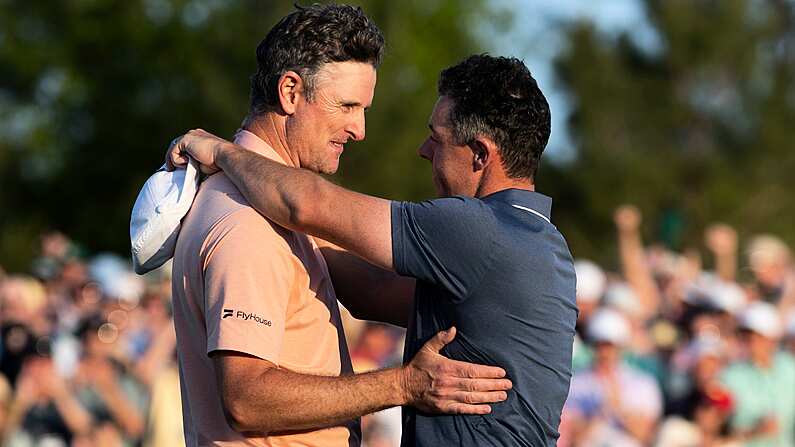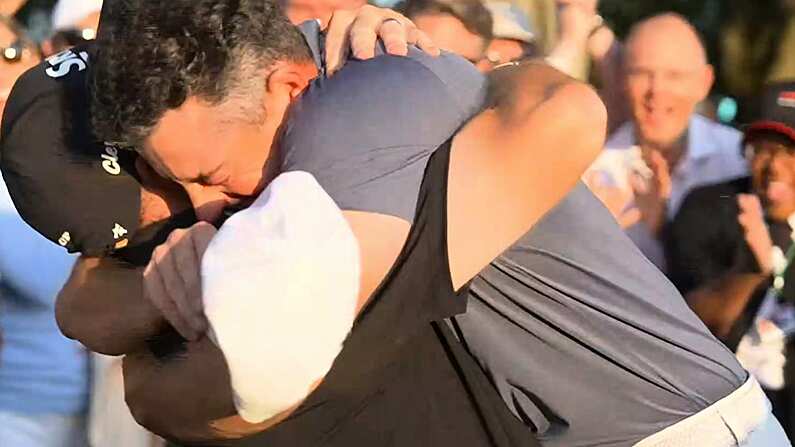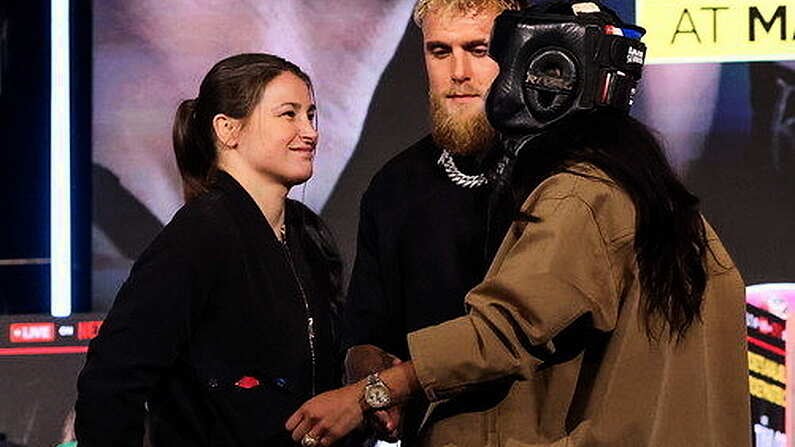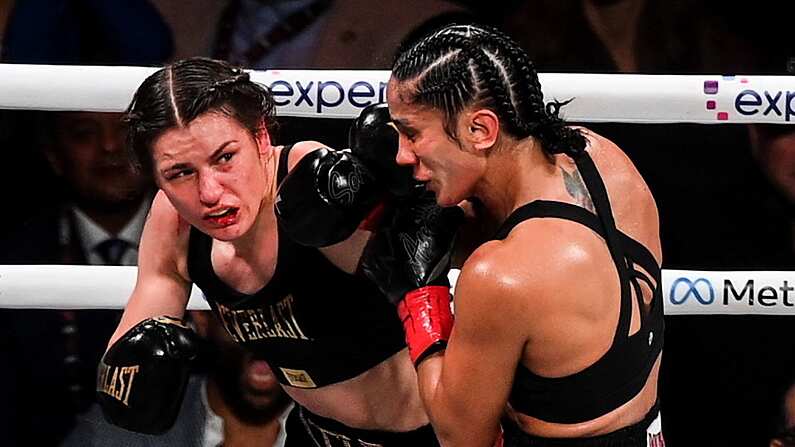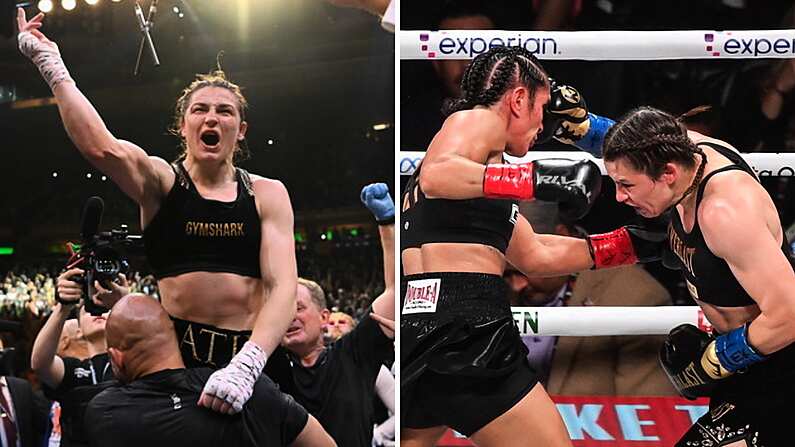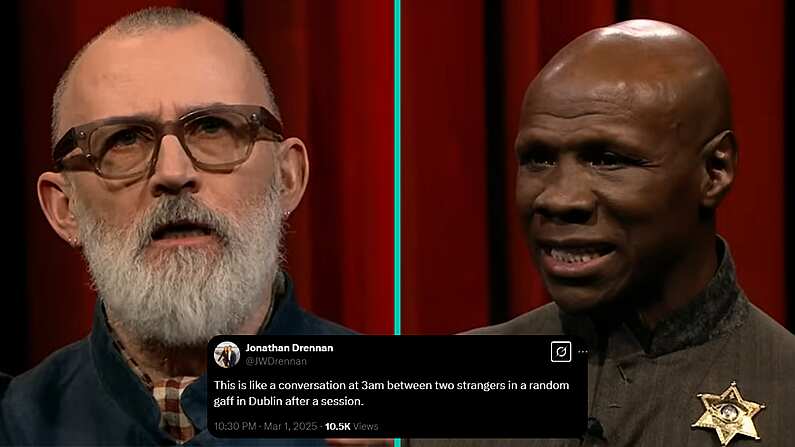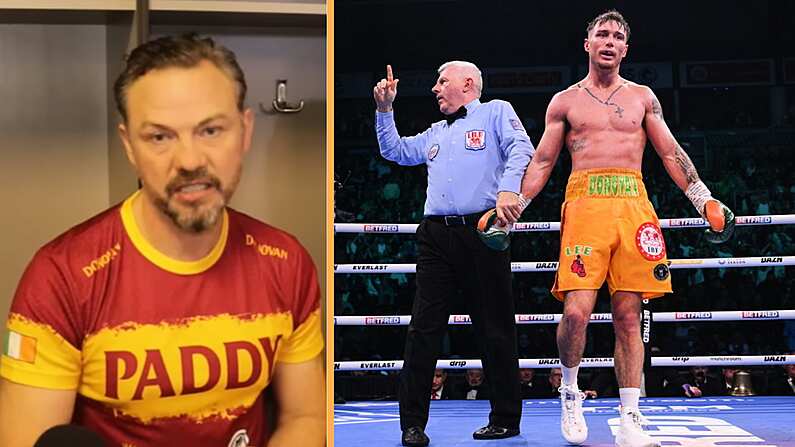On the eve of his record-breaking megafight with Manny Pacquiao on May 2nd, pound-for-pound kingpin Floyd 'Money' Mayweather took an intravenous injection of saline and vitamins that was banned under World Anti-Doping Agency guidelines, according to a report by Thomas Hauser for SB Nation.
On Friday afternoon, just after the weigh-in, collection agents for the United States Anti-Doping Agency (USADA) - contracted to oversee drug testing for the Mayweather-Pacquiao fight - went to Mayweather’s Las Vegas mansion to conduct a random, unannounced drug test.
Mayweather's medical team told the collection agents that the IV - which reportedly included a 250-milliliter mixture of saline and multivitamins and a 500-milliliter mixture of saline and Vitamin C - was being given to Mayweather for rehydration purposes following the weigh-in.
The World Anti-Doping Agency (WADA), whose rules USADA claim to abide by in order to legitimately carry out testing for the USA's Olympic athletes, do not allow intravenous infusions or injections of more than 50 milliliters per six hours "except for those legitimately received in the course of hospital admissions, surgical procedures, or clinical investigations."
According to the report, WADA bans such injections and infusions because they can be used to "dilute or mask the presence of another substance."
The undefeated welterweight received an exception from the USADA to use the IV drip, but his camp did not apply for this waiving of both USADA and Nevada State regulations until 18 days after the fight, i.e. it was neither in place nor applied at the time of Mayweather's defeat of Pacquiao via unanimous decision in one of the most lucrative bouts in boxing history.
Hauser's revelations have shaken the world of boxing, and in his superb report he also explains in greater detail both Mayweather and the sport of boxing's relationship with USADA, which has produced an irregular fee structure proportional to the size of fights as opposed to a standardised charge.
The famed author and boxing historian asserted that, despite his constant claims to the contrary in order to boost his image as the 'clean face' of boxing, Mayweather does not undergo Olympic-style testing, i.e. he does not present himself as available for random blood and urine tests 365 days a year.
Instead, Mayweather selects the date for USADA's first test, and for recent fights, this date has left an increasingly short window between the start of testing and the main event.
Although this was common knowledge to many, its implications could be sinister according to Victor Conte - the doctor behind the BALCO scandal which rocked baseball and other sports at the turn of the millenium.
Now an outspoken anti-doping advocate, Conte told Hauser:
The benefits that an athlete retains from using anabolic steroids and certain other PEDs carry over for months. Anybody who knows anything about the way these drugs work knows that you don’t perform at your best when you’re actually on the drugs. You get maximum benefit after the use stops.
I can’t tell you what Floyd Mayweather is and isn’t doing. What he could be doing is this: The fight is over. First, he uses these drugs for tissue repair. Then he can stay on them until he announces his next fight, at which time he’s the one who decides when the next round of testing starts. And by the time testing starts, the drugs have cleared his system.
Interestingly, Mayweather turned down Pacquiao's proposal that should either fighter test positive for a banned substance ahead of their May bout, they be fined $5m - this just three years after Mayweather was adjudged to defame the Filipino icon with accusations of cheating - a case which was eventually settled out of court.
Around the time of litigation, substantial rumours surfaced that Mayweather had in fact tested positive for banned substances on three occasions, but then-Mayweather promoters Golden Boy had reached an agreement with USADA that provided for the non-disclosure of such tests were the substances in question used 'inadvertently.' This followed 2010 pressure from Thomas Hauser on Oscar De La Hoya to sign a waiver which would allow the Nevada Commission to release records of drug tests conducted on De La Hoya when he was fighting.
We'll be breaking down Hauser's game-changing report later today, but it's a startling and compelling read, and here it is in full.




